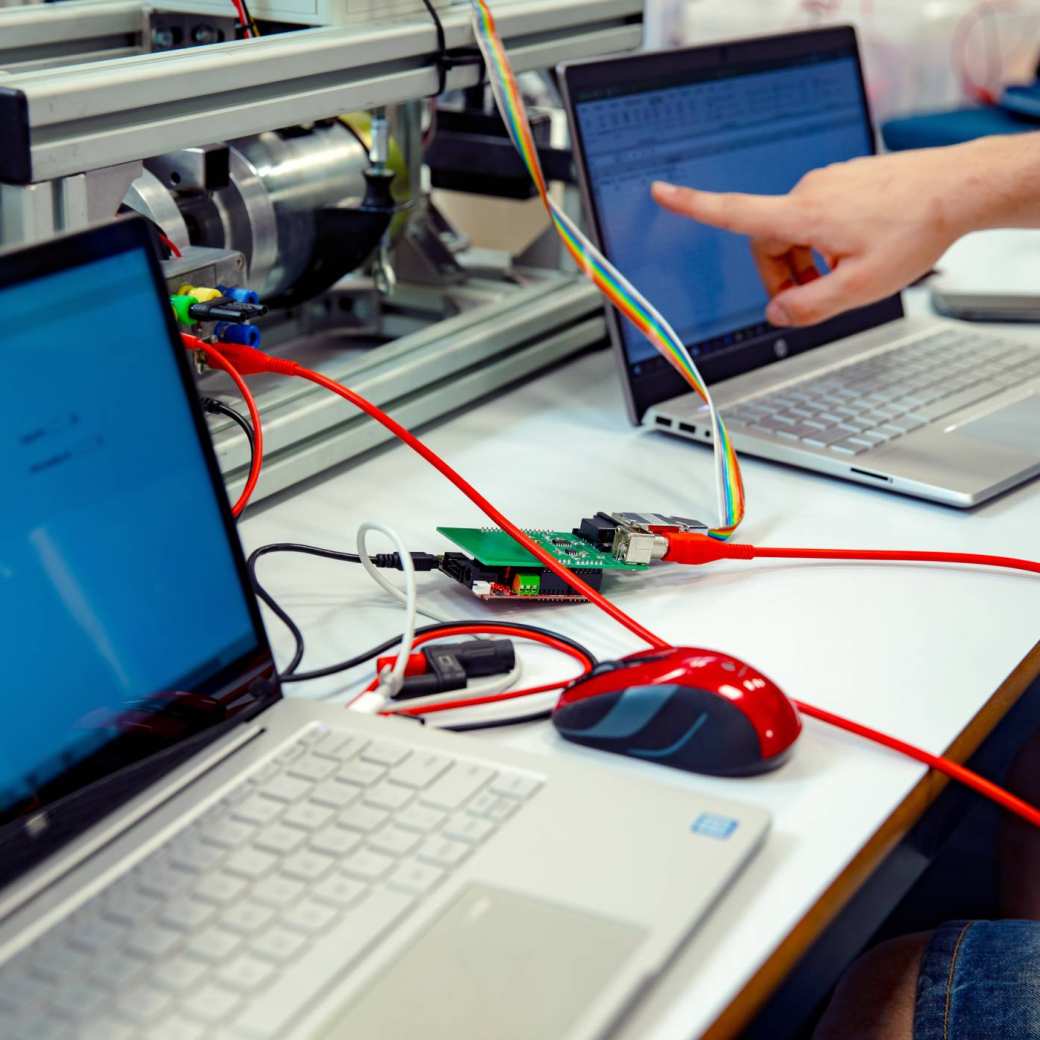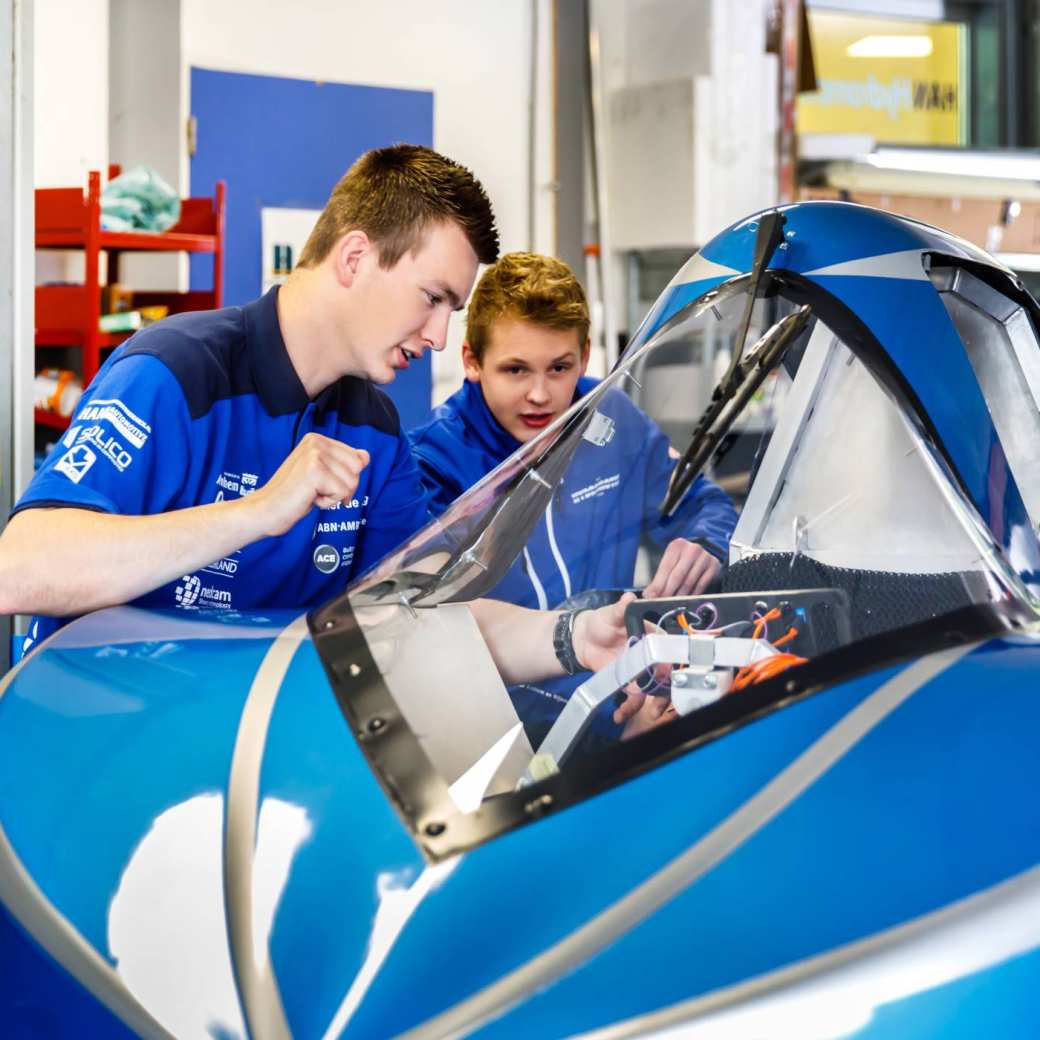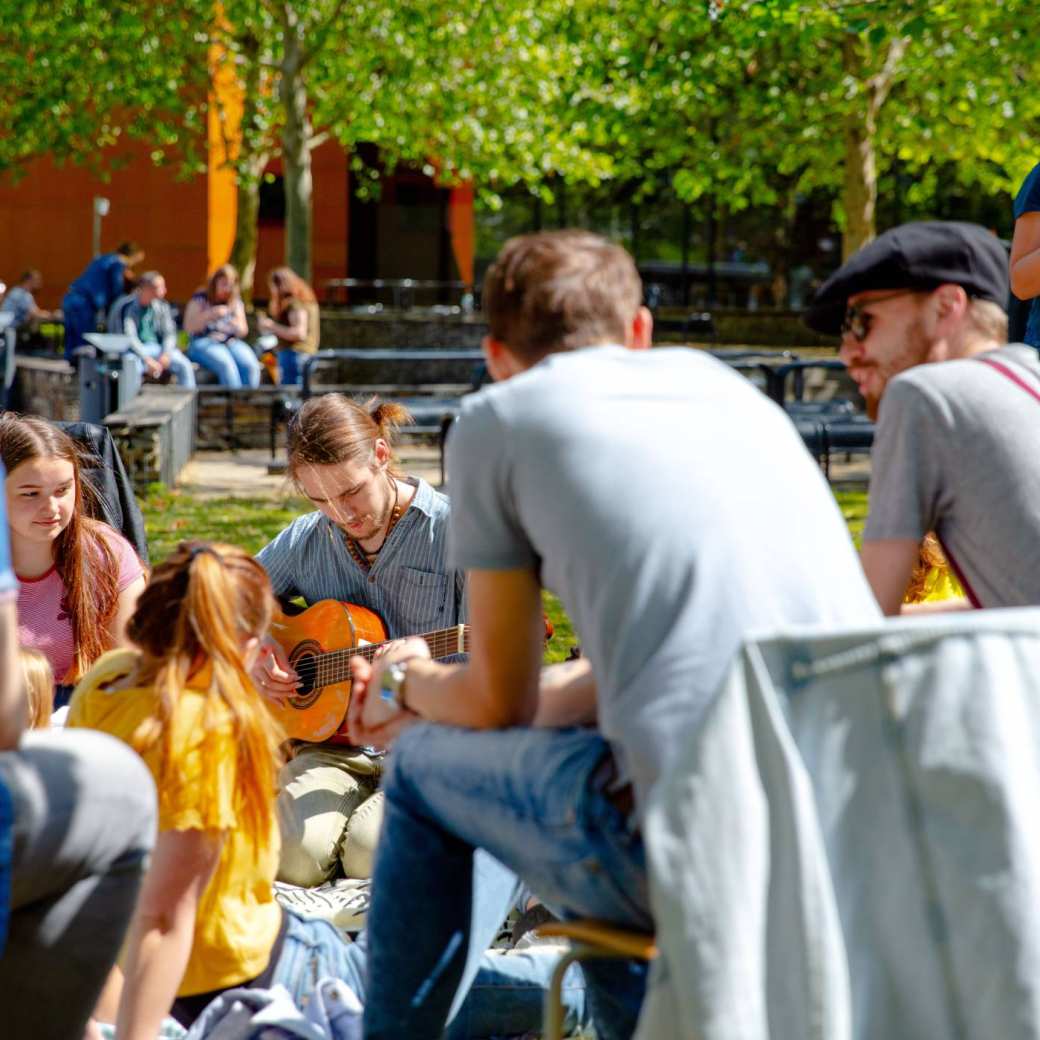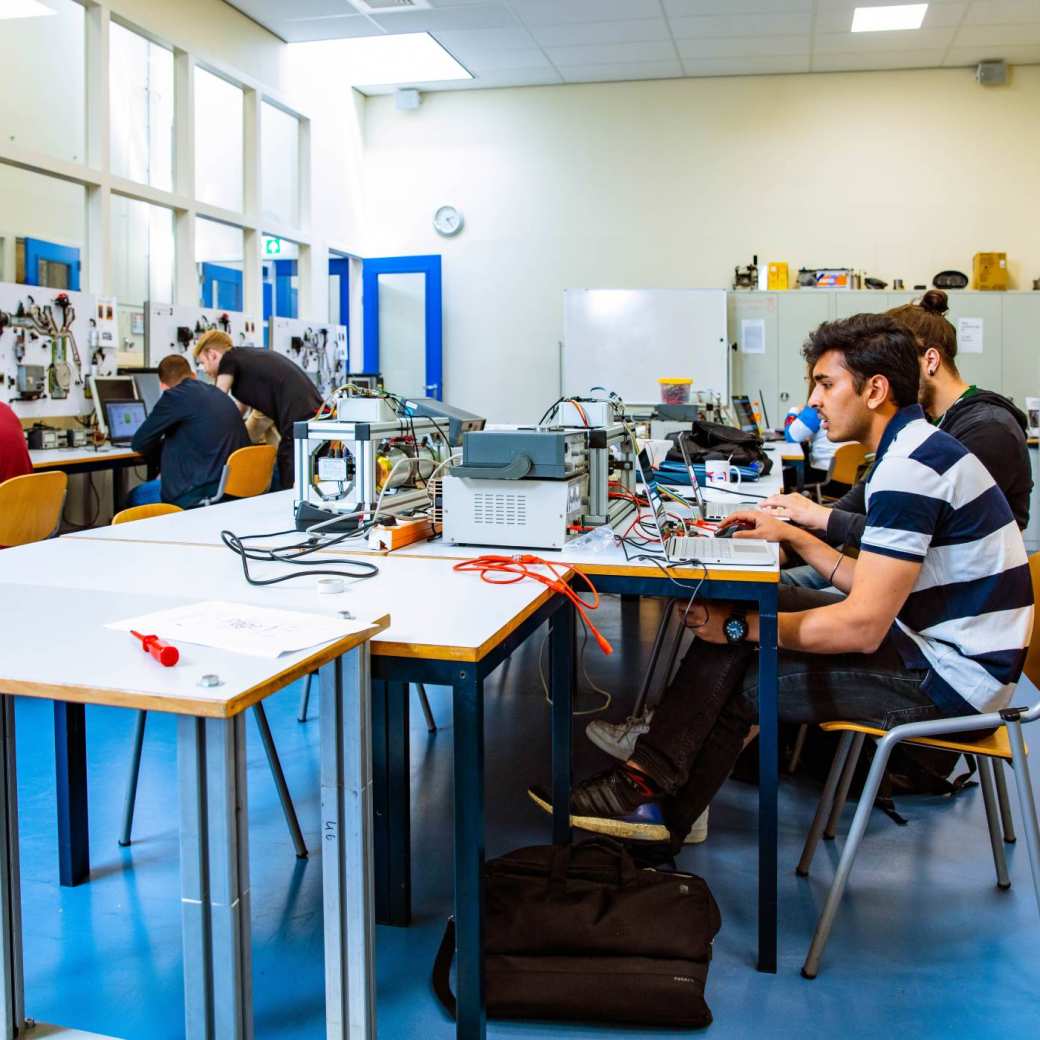Internal Combustion Engines
In this program, you learn all you need to know about internal combustion engines. You combine practical lessons with project work. Learn how to test and process measurements. Design an engine and produce a computer simulation. And so much more!

The program in a nutshell
Your classes and workshops take place Monday through Friday. You get a feel for technical, research and design skills. How to get the best performance with the least emissions. And maximize energy efficiency. You learn all this and more in the classroom and in a state-of-the-art facility.
Throughout the program, you put your new-found knowledge to the test in a final project. A working model of an internal combustion engine for a vehicle of your choosing.

Program details
Learning outcomes
By the end of Internal Combustion Engines, you can:
- decipher the factors of internal combustion engine optimization and design.
- understand and carry out exhaust gas aftertreatment.
- put theory into practice when working on engine development and testing.

Competences
You strengthen these competence areas during the program:
- Analysis
- Design
- Consultancy
- Research

Dutch way of learning
The atmosphere in a Dutch classroom is quite informal and your lecturers are easy to talk to. In fact, at HAN you’re seen as a partner in the learning process. Class sizes are small and your lecturers encourage you to actively participate in class. To ask questions and give your own opinion. They also stimulate you to be creative and to discover things for yourself.

HAN International Intro
Get a good start to your studies during this week of orientation:
- learn about living in the Netherlands
- become familiar with the campus
- get on board with your exchange program
- make new friends!

What about credits and grading?
At HAN we use the European Credit Transfer and Accumulation System, or ECTS. It’s the standard credit system used in higher education across Europe. How does it work? One credit = 28 hours of study. Think of contact hours. Time spent working on assignments. Preparing for exams.
One semester = 30 credits = 840 hours of study. To earn credits, you need to pass your exams. What counts as a pass? A grade of at least 5.5.

Admission
What are the admission requirements? And how do I apply?
